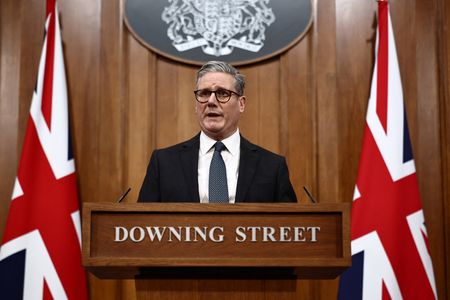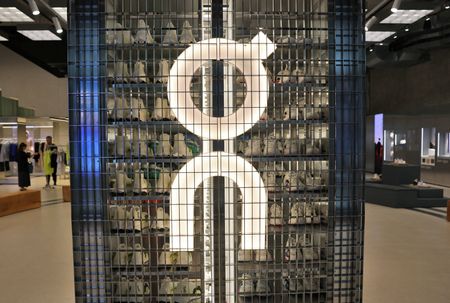LONDON (Reuters) -Britain’s counter-radicalisation scheme Prevent recorded a 27% rise in referrals last year, with about a third of those concerning individuals without an ideology, showing the scale of the challenge in countering attackers bent on mass killings.
Prevent has come under intense scrutiny since it emerged that teenager Axel Rudakubana, who murdered three girls at a Taylor Swift-themed dance event in Southport in 2024, had previously been referred by his school, but concerns about his violent tendencies were not acted upon.
Government figures published on Wednesday showed 8,778 referrals were recorded in the year to March, and of those 34% did not have a ideology specified. Of the rest, 21% were related to extreme right-wing ideology and 10% were associated with Islamist extremism.
Security Minister Dan Jarvis said in a statement Britain was seeing an increase in concerns regarding those that have a fascination with extreme violence or mass casualty attacks, and Prevent had to deal with the full range of threats.
After Rudakubana’s jailing, Prime Minister Keir Starmer said terrorism had changed, with some individuals fixated on extreme violence, seemingly for its own sake.
The UK terrorism watchdog said in March that the government should consider a new law to give police extra powers to deal with those intent on mass violence but with no ideology.
Jarvis said Prevent needed to effectively tackle the threat Britain was facing.
“While the presence of ideology is clearly an important factor, Prevent must not limit its scope to cases where a terrorist ideology has clearly already taken hold,” Jarvis said.
A government review of Prevent published in July called on the scheme to adapt its approach to deal with the threat from online radicalisation and with those who were obsessed with violence, such as Rudakubana.
(Reporting by Sarah Young; editing by Michael Holden)











